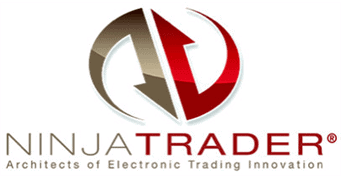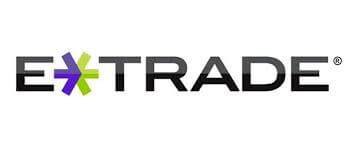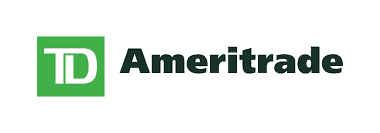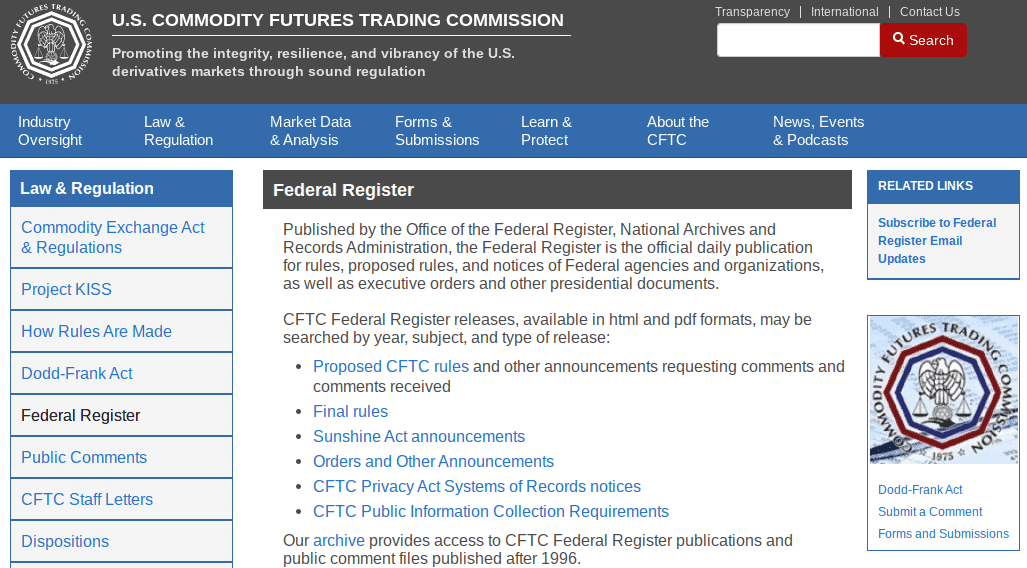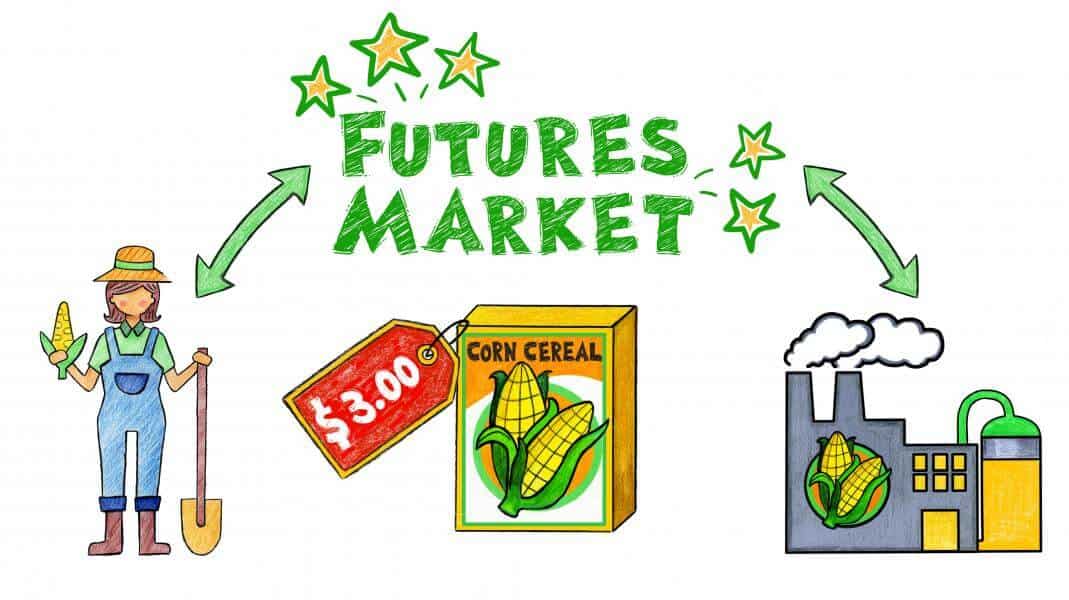Best Futures Brokers in 2021
Until recently, only wealthy traders could benefit from the many advantages of futures contracts. With the introduction of mini futures contracts, anyone can trade futures for as little as $5. Not all online brokers offer futures, though, although more are adding this low cost trading asset to their offerings. We have done the work for you and found the best futures brokers of 2021 for beginner and advanced traders alike.
The best futures brokers of 2021 will not be the same for all traders. Some trading platforms provide advanced trading tools with fancy add-ons for high fees, while others provide all the basic tools most investors need and low fees. Others may entice you into a virtual online futures casino if they offer you high margin loans to make big bets on futures prices without providing trading risk management tools.
Our comprehensive Best Futures Brokers 2021 Guide we’ll show you everything you need to know to choose the right platform for your trading strategy and risk profile. Below we compare the best three brokers of 2021 and the key features you need to evaluate to make an informed decision when choosing an online futures broker.
The 3 Best Online Futures Brokers
Before we take an in-depth look at the top online commodity brokers, here’s a quick look at the brokers that are a cut above the rest.
- Ninja Trader – Best for advanced futures traders
- E-TRADE – Best futures broker for beginners
- TD Ameritrade – Reputable broker with low fees
-
-
Trade with eToro - World Leading Social Trading Platform
Our Rating
- Trade Stocks, Forex, Crypto and more
- 0% Commission on Real Stocks
- Copy Trades of Pro Investors
- Easy to Use Trading Platform
67% of retail investor accounts lose money when trading CFDs with this provider. You should consider whether you can afford to take the high risk of losing your money.Note: Futures contracts are leveraged instruments with potential to multiply your investment returns but also with equally high risk of losses. As such, you should only buy and sell futures if you know what you are doing, and crucially, you have a firm grasp of the underlying risks.What Criteria are Used to Rank the Best Futures Brokers?
- How many financial instruments does the broker list?
- How much does the broker charge in trading fees and commissions?
- What level of leverage can you trade with?
- What trading features and charting tools does the broker offer?
- How much money do you need to start trading?
Top Futures Brokers Online
While there are literally thousands of futures brokers currently operating in the online space, we have narrowed our top picks down to just three. To ensure you begin your futures trading journey on safe ground, we have featured only brokers regulated in the financial markets they do business in.
1. Invest With NinjaTrader Today - Best for Advanced Futures Traders
If you're an experienced trader that has a full grasp of the ins and outs of futures contracts and want the latest and most innovative trading tools at your fingertips, then we would suggest checking NinjaTrader out. Over 200 futures contracts can be traded at the click of a button.
Highly traded commodities in agriculture, interest rates, energy, metals (gold, silver, and copper), stock indexes, and foreign exchange futures are offered, as well as micro and e-mini contracts. You can trade all these futures seated in front of a powerful trading screen with unlimited technical indicators and customization.
This extensibility is possible because NinjaTrader is the MetaTrader for futures markets. Thousands of third-party technical indicators are available as apps and add-ons, or if you have some software development experience build your own futures trading apps. Once set up, you can benefit from Automated trading and a Market Replay feature to analyze your past trades and data.
What’s surprising is that this trading experience comes at discount broker pricing. There are three tiers of commissions: Free, Lease, and Lifetime. For free members, gold futures can be traded for 0.29. Micro and e-mini contract fees on well-known stock market indices such as the Nasdaq, Dow Jones, and S&P 500 range from 0.29–1.19.
The fee for all other futures contracts is 1.19, or 0.89 for Lease and 0.59 for Lifetime. Once exchange and order routing fees are added, the all-inclusive fee is 2.54, 2.24, and 1.94, respectively. Low margins requirements enable traders to take high leverage, making this platform suitable for experienced futures and day traders. The account minimum on futures accounts is $1,000.
5
- Low account minimum and fees on 200+ futures contracts
- Low margin requirements/high leverage
- Free advanced charting, market analytics, and trade simulation
- Lowest fees via Lease ($60/month) and Lifetime ($1099) plans
- Advanced orders and technical indicators via Lease/Lifetime plans
2. Invest With E*TRADE Today - Best for Beginner Futures Traders
If you're looking for an all-in-one trading platform that offers a good range of futures contracts at a competitive rate, E*TRADE is the plain vanilla choice for futures trading with some impressive bells and whistles.
Beginners will find the intuitive trading interface and basic education to be helpful guides to futures trading. On the Power E*TRADE platform, more experienced futures traders will appreciate the fancier charting, technical indicator and screening tools.
The pioneer in online trading provides all the basic tools a futures trader needs, and more. The Power E*TRADE platform, initially built for trading derivatives like futures and options, is available on desktop and via mobile app. Handy features include solid futures research (powered by the CME, the largest futures exchange), heat maps to track futures pricing trends, and the ability to place and modify trades directly from futures ladders.
All account holders have access to a news market feed and live market commentary, as well as analyst research. E*TRADE offers 60 futures contracts across market indices, energies, metals, interest rates, currencies, and Bitcoin futures. If you want to dabble in smaller, low fee futures trades, the popular e-mini and micro e-mini contracts are here. The futures commission is $1.50 per futures contract, which you'll pay at both ends of the transaction, plus exchange fees. The fee is $2.50 on Bitcoin futures.
The fee would suit the casual trader who benefits from other E*TRADE features. The day trader may seek out lower fees. The broker does not implement any short-selling restrictions. Approval to trade futures is required by contacting customer support by phone. All traders are required to have a minimum account balance of $500 and $2,000 for margin trading.
4.5
- Competitive fees on 60 futures contracts
- Competitive margin requirements (3–12%)
- Solid futures trading research and educational resources
- Slightly higher fees: $1.50 per futures contract (both sides+exchange fees)
- Minimum account balance of $2000 to trade futures on margin
3. Invest With TD Ameritrade Today - Best for All-Round Futures Traders
TD Ameritrade is a reputable online investment brokerage, offering investment, retirement and managed accounts. The full range of investment products are offered, including futures and options, and options on futures.
An investor who wants the convenience of integrating futures trading into their overall investment portfolio strategy will find all the futures products, trading tools, and trading education they need at TD Ameritrade. The platform offers more than 70 contracts and 16 options on futures contracts, including e-mini and micro e-mini contracts.
Commodities include metals, stock indexes, interest rates, currencies, energy, agriculture, and forest markets. Futures trading takes place on Futures Trader, a part of the thinkorswim® desktop and mobile app. A pane intuitively integrates all research, news, charting, trade execution, and more for each commodity you are trading.
You may customize the number of panes to track on your screen. The trading platform comes with a plethora of advanced order types, indicators, and charting tools. Fees are low and competitive at $2.25 per futures contract, plus exchange and regulatory fees. To trade futures on TD Ameritrade , you first need to apply for both Margin and Options Level 2 approval, which allows a trader to buy calls and puts. The margin account minimum is $1,500 for an Ameritrade Future and Forex account, $15,000 for intraday trading, and $25,000 in an IRA account.
4.5
- Low fees on 70+ futures contracts
- Competitive margin requirements (2–12%)
- Powerful mobile platform with all features of the desktop
- High account minimum for retirement accounts
- Futures trading approval could be initially denied
What to Consider When Choosing a Futures Broker?
More traders are seeking to trade using leverage to increase their trading power. This desire for higher gearing has led to a boom in trading in derivatives instruments including futures, options, and CFDs. All these financial instruments allow you to bet on the direction of future prices of underlying assets (stock indices, metals, energy, agricultural products, currencies, and more) for a small fee representing a small fraction of the cost of buying the asset outright.
So should you trade futures, options or CFDs? Futures markets are highly liquid and the safest way to trade with leverage for several reasons. Unlike CFDs and some options, futures trading and pricing is transparent and takes place on a regulated exchange. Other advantages include fixed pricing (per contract) and set margin requirements (per contract). Nonetheless, many factors can increase futures trading risk, including regulation, fees, and a lack of risk management tools, and educational resources.
To help you choose a futures broker, we have listed the main features that you need to look out for prior to choosing a futures broker.
- Is the futures broker regulated?
Your first port of call should be to assess the platform’s regulatory standing. If you are based in the US, then you need to ensure that the futures broker is regulated by both the National Futures Association and the Commodity Futures Trading Commission (CFTC). If you’re actively trading with a European-based broker, then key regulators include the UK’s Financial Conduct Authority (FCA) and CySEC in Cyprus.
- Trading fees
The trading commission varies across futures brokers. In the vast majority of cases, you will pay a fixed fee for each futures contract that you buy or sell. For example, if you purchase 10 futures contracts in Crude Oil, and the broker charges $1.50 per contract, then you will pay $15 in fees (10 contracts x $1.50).
Some futures brokers will instead charge you a percentage fee. This is calculated against the total size of your order. For example, if you purchase $10,000 worth of contracts on the S&P 500, and the broker charges 1% in fees, you would pay $100. Additionally, exchange, order routing, and clearance fees may be charged. These fees are often quoted separately from the commission fees so read the fees schedule carefully.
- Types of Futures Contracts Listed
Over a trillion dollars in futures contracts trade daily across a broad and growing range of underlying assets (BIS). Popularly traded futures markets include currencies, grains, energies, stock market indices, cryptocurrencies, and interest rates. Not all futures brokers have an extensive list of futures contracts for sale, though, so peruse the product offering prior to signing up. Also check the maturity dates of each contract, as they can vary depending on the asset class.
- Customer Support
As futures contracts are a highly sophisticated financial instrument, you need to ensure that you have top-notch support available as and when you need it. The best futures brokers in the market will offer a number of different support channels. This should include a fully fledged telephone support line, as well as live chat. Crucially, you’ll want to choose a broker that offers customer support on a 24/7 basis.
- Margin Trading
The vast majority of futures contracts are purchased on margin. For those unaware, margin trading allows you to invest more than you have in your account. Although this leverage* allows you to amplify your gains, margin trading is fraught with risk. Essentially, if your futures trade goes against you, and you don’t have the required margin in your account, your trade could be liquidated. This means you will lose your entire stake, so tread with caution! Futures brokers set margins as a dollar amount per contract.
* Leverage is how much you can borrow above your account balance to increase your trading buying power. If you have a $1,000 account balance and 10:1 leverage, you can trade up to $10,000. The margin requirement is 10 percent.
- Research and Education
Futures trading is considered a sophisticated trading strategy, although it is actually quite simple once you understand the basic concepts. You should only engage in futures trading if you have a firm grasp of the underlying risks. With that being said, if you are a beginner and you’re prepared to start with small stakes, you’ll want to choose a futures broker that offers an extensive educational department.
We also prefer brokers that offer ongoing news and analysis on key futures markets. Some platforms have dedicated commentators on a specific niche like Crude Oil or GBP/USD, which is super-useful. For those of you that like to focus on the technicals, stick with brokers that offer heaps of charting tools.
What Assets Can I Buy and Sell Futures Contracts?
Futures contracts allow you to speculate on the future price of virtually any asset class. If there is a traditional market for the asset in question, then you can be all-but-certain that futures contracts can be purchased. Moreover, unlike traditional assets like stocks and shares, futures contracts allow you to profit when the price of an asset goes down though short selling.
Below we’ve listed the most common asset classes that most futures brokers typically list (Futures contracts also are traded on weather conditions (temperature, snowfall), freight costs, employment numbers, and many other types of forecasts that affect business profits.).
- Stock Market Indices
One of the most popular markets for futures traders is that of stock market indices. For those unaware, indices allow you to invest in the wider stock markets. For example, the S&P 500 allows you to invest in the 500 largest US companies listed on the Nasdaq and NYSE. Similarly, the FTSE 100 covers the 100 largest companies traded on the London Stock Exchange. By trading futures on indices, you can speculate on the future price of the wider economy or industry at the click of a button. Stock indices are a good way to hedge the stocks and bonds in your stock portfolio.
- Energies
The energies market covers the conventional oil and natural gas space. Energy futures allow you to easily invest in the future price of oil and gas without needing to own or store the underlying asset. There are a number of energies futures markets traded, and prices are based on the location. For example, while Brent Crude Oil is based on oil fields in the North Sea, the West Texas Intermediate (WTI) is based on US reserves.
- Currencies
When investors buy and sell currencies, this is known as ‘Forex’ trading. You can also buy and sell futures contracts on popular forex pairs. For example, you can speculate on the future price of GBP/USD. Currencies in particular are heavily affected by real-world affairs, so you need to keep abreast of any key developments that could impact your trade. This could include an increase or decrease of central bank interest rates, or the release of GDP figures.
- Metals
Metals trading is also hugely popular in the futures space. This market includes gold, silver, and platinum. Once again, futures contracts make it super-easy to speculate on metals without needing to worry about storage. Instead, you merely need to assess whether you believe the price of the asset will go up or down before the contract matures.
Note: The maturity on a futures contract is the date on which it expires. If you don’t sell the contract before the maturity date is activated, it will automatically close.- Bitcoin
Bitcoin futures became trendy in late 2017, with both the CME and CBOE launching markets for institutional investors. Although trading volumes are still minute in comparison to the more traditional asset classes, demand is on the rise. A number of brokers now support Bitcoin futures for retail clients. This gives you direct access to the weird and wonderful world of Bitcoin without needing to actually own or store the asset. Just remember that Bitcoin is still highly volatile, so proceed prudently – especially if trading on margin!
Learn more about cryptocurrency trading here.
Summary – Choosing a Trading Platform
If you are enticed by the futures trading opportunities with one of the three futures brokers that we have recommended, it is crucial that you still perform your own due diligence. The pros and cons of each broker will weigh differently for each individual trader, so you need to ensure that the platform is right for your individual needs. Your research should include the platform’s regulatory standing, supported payment methods, hidden fees, and reputation within the online trading community (If you are a mobile trader, also check out the trading app reviews.).
As futures contracts are highly complex financial instruments, make sure that you have a firm grasp of how the space works prior to risking your own money.
Trade with eToro - World Leading Social Trading Platform
Our Rating
- Trade Stocks, Forex, Crypto and more
- 0% Commission on Real Stocks
- Copy Trades of Pro Investors
- Easy to Use Trading Platform
67% of retail investor accounts lose money when trading CFDs with this provider. You should consider whether you can afford to take the high risk of losing your money.Glossary of Trading Platforms Terms
Platform FeeThe trading platform fee refers to the amount a trader pays to use the platform and access its integrated platform features and tools. It can be a one –time fee paid for the acquisition of the trading platform, a subscription fee paid monthly or annually. Others will charge on a per-trade basis with a specific fee per trade.
Cost per tradeCost per trade is also referred to as the base trade fee and refers to the fee that a broker or trading platform charges you every time you place a trade. Some brokers offer volume discounts and charge a lower cost per trade for voluminous trades.
MarginMargin is the money needed in your account to maintain a trade with leverage.
Social tradingSocial trading is a form of trading that allows for the interaction and exchange of trade ideas, signals and trade settings between the different classes of traders.
Copy TradingCopy trading, also known as mirror trading is a form of online trading that lets traders copy trade settings from one another. In most cases, it is the newbies and part-time traders that copy the positions of pro traders. The copiers -in most cases - are then required to surrender a share of the profits made from copied trades – averaging 20% - with the pro traders.
Financial instrumentsA Financial instrument ideally refers to the proof of ownership of financial commodities of monetary contracts between two parties. In the money markets, financial instruments refer to such elements as shares, stocks, bonds, Forex and crypto CFDs and other contractual obligations between different parties.
IndexAn index is an indicator that tracks and measures the performance of a security such as a stock or bond.
CommoditiesCommodities refer to raw materials used in the production and manufacturing of other products or agricultural products. Some of the most popular commodities traded on the exchange markets include energy and gases like oil, agricultural products like corn and coffee, and precious metals like gold and silver.
Exchange-Traded Funds (ETFs)An ETF is a fund that can be traded on an exchange. The fund is a basket containing multiple securities such as stocks, bonds or even commodities. ETFs allow you to trade the basket without having to buy each security individually.
Contract for difference (CFD)CFDs are a form of contractual trading that involves speculating on the performance of a particular trade in the market. CFD’s will basically allow you to speculate on the future value of securities such as stocks, currencies and commodities without owning the underlying securities.
Minimum investmentThe minimum investment simply refers to the lowest amount of capital injection you can deposit into a brokerage or a trading platform. Different brokers demand varied minimum investment amounts from their clients either when registering or opening trade positions.
Daily trading limitA daily trading limit is the lowest and highest amount that a security is allowed to fluctuate, in one trading session, at the exchange where it’s traded. Once a limit is reached, trading for that particular security is suspended until the next trading session. Daily trading limits are imposed by exchanges to protect investors from extreme price volatilities.
Day tradersA day trader is a term used to describe a trader who is constantly opening trades and closing them within a day. It is a common term used to refer to forex traders who open trade and only hold onto it for a few minutes or hours before disposing and having to leave no open trades at the time the trading day closes.
FAQs
What is a futures contract?
A futures contract allows you to speculate on the future price of an asset without needing to own or store it. You need to decide whether you believe the price will go up or down before the futures contract matures.
What does it mean when a futures contract matures?
Futures contracts will always come with an expiry date. Known as the ‘maturity’, this is the date on which your futures contracts will automatically be closed. In most cases, futures contracts have a maturity date of 3 months, although they can be both shorter or longer.
What is margin trading?
Margin trading allows you to purchase futures contracts with more money than you have in your trading account. Although they give you the opportunity to amplify your gains, they can also amplify your losses. As such, tread with caution.
What can you trade futures on?
If an asset can be bought and sold in the traditional sense, then it’s likely that a futures market exists. This covers everything from stock market indices, currencies, metals, energies, cryptocurrencies, and interest rates.
How are fees charged on a futures contract?
Most futures brokers will charge you a flat fee for each contract that you purchase. For example, if the broker charges $1 per contract, and you buy 25 contracts, you’ll pay $25 in fees.
Is the underlying commodity of a futures contract delivered?
In most cases, no physical exchange takes place. Instead, the contract difference is paid out by the buyer or seller on the settlement date. The number of speculative traders like you trading for pure profit dwarfs the physical hedgers. The physical trade in the underlying assets represents only 4—5 percent of the trillions in notional value traded via financial futures.
See Our Full Range Of Broker Resources – Brokers A-Z
Kane Pepi
View all posts by Kane PepiKane holds academic qualifications in the finance and financial investigation fields. With a passion for all-things finance, he currently writes for a number of online publications.
WARNING: The content on this site should not be considered investment advice. Investing is speculative. When investing your capital is at risk. This site is not intended for use in jurisdictions in which the trading or investments described are prohibited and should only be used by such persons and in such ways as are legally permitted. Your investment may not qualify for investor protection in your country or state of residence, so please conduct your own due diligence. Contracts for Difference (“CFDs”) are leveraged products and carry a significant risk of loss to your capital. Please ensure you fully understand the risks and seek independent advice. This website is free for you to use but we may receive commission from the companies we feature on this site.
Copyright © 2026 | Learnbonds.com
We use cookies to ensure that we give you the best experience on our website. If you continue to use this site we will assume that you are happy with it.Scroll Up

